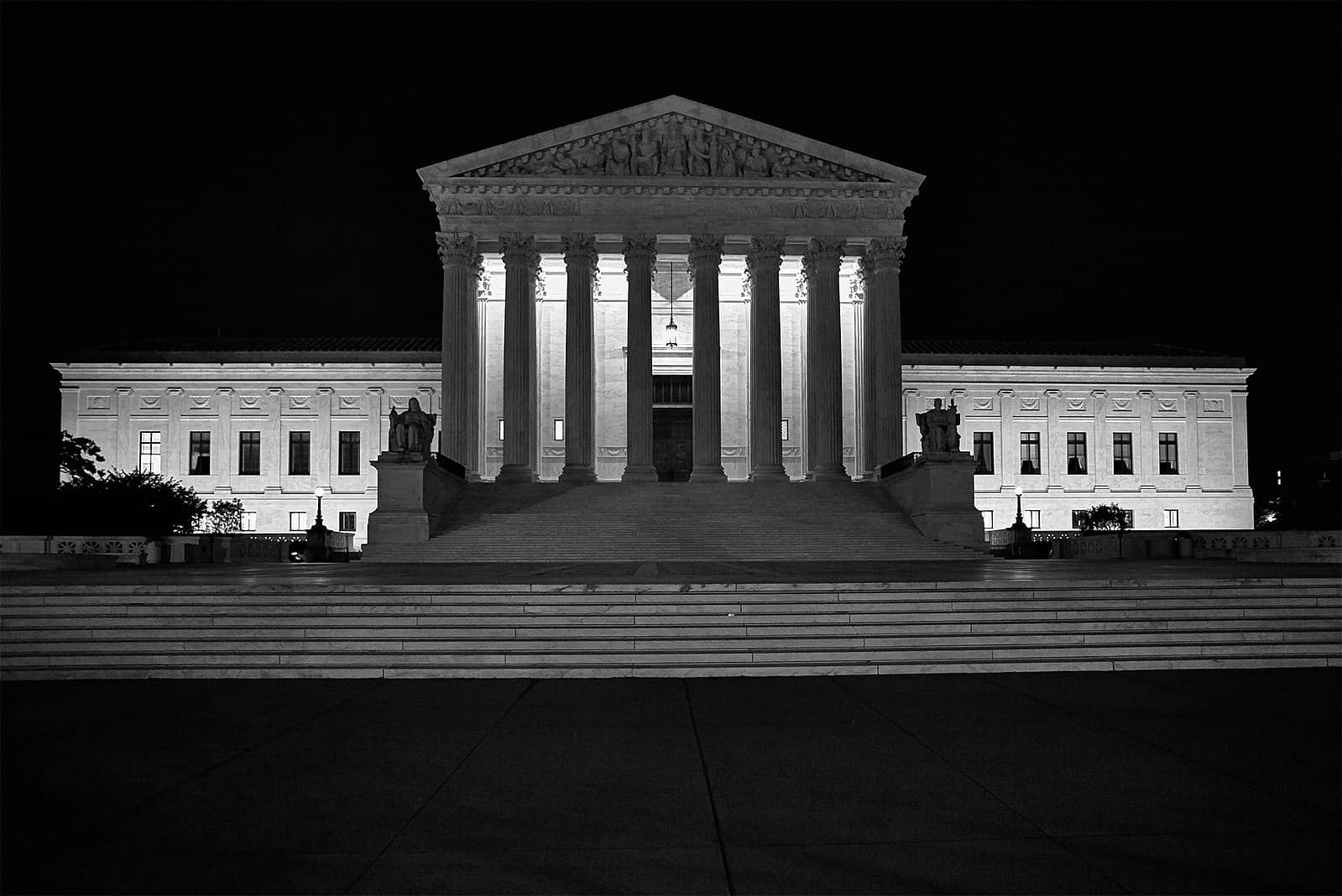
Kevin Vazquez is a staff attorney at the International Brotherhood of Teamsters. He graduated from Harvard Law School in 2023. The opinions he expresses on this blog are his own and should not be attributed to the IBT.
On Friday, in news that has roiled the country and much of the Western world, the Supreme Court overruled Roe v. Wade in Dobbs v. Jackson Women’s Health Organization, eliminating the constitutional right to an abortion and peeling back decades of women’s rights and autonomy in a raw exercise of judicial power that is shocking even by the Court’s standards. Much has already been written about the shoddiness of the majority’s decision: it was based on a fabricated and absurd method of constitutional interpretation; its reasoning was illogical and specious; its historical analysis was amateurish and sloppy; and, as noted by the masterful dissent, it reversed nearly 50 years of settled precedent without compelling reason, making a mockery of stare decisis, a core foundational premise upon which our legal system rests. More important, however, are the practical consequences of the decision, which, though willfully ignored by the majority, are undeniably grim and were entirely predictable. Abortion has already been outlawed in nine states with trigger laws, and twelve more are likely to follow suit. Of the remaining 29 states, at least nine more may potentially move to curtail or eliminate abortion, meaning that, in sum, the procedure will likely soon be illegal in more than half of the country. This weekend, medical providers—and the women they were poised to treat—were left scrambling and unmoored, canceling scheduled appointments and redirecting bewildered patients. This, of course, is only a harbinger of what is to come. This vicious decision will undoubtedly strike most ferociously at the margins of society, among the poor, the working-class, and people of color, but it will inescapably affect virtually all women, who have been effectively relegated to second-class citizenship, as well as many non-binary individuals and even men. In one fell swoop, the Court has not only subordinated women in all spheres of society—the workplace, the home, politics, even quotidian social relations and interactions—but it has almost certainly induced indefinite years of physical and psychological violence against them: from amateur medical providers covertly performing illegal abortions; from healthcare systems no longer permitted to perform life-saving abortion procedures; from aggrieved families, social networks, and sexual partners; and from men who are unprepared or unwilling to raise a child. This is in addition, of course, to the trauma imposed on many women who will be forced to bear and rear a child—often alone—in a nation without adequate healthcare, childcare, education, transportation, or any form of social assistance to the poor or working class.
The labor movement, rightfully recognizing it as an assault on millions of its members (and millions more unorganized workers), has struck back forcefully against the Dobbs decision. Liz Shuler, President of the AFL-CIO, called the decision “a devastating blow to working women and families across the country” that “will only deepen racial and economic disparities.” Mary Kay Henry, President of SEIU, said that, though the court and right-wing politicians “claim to support families,” they have “taken every opportunity to undermine the progress made by working women and mothers.” Becky Pringle, President of the NEAT, said that the court is “putting a radical agenda above our basic human rights and freedoms.” The AFT went further, saying: “This revanchist view of their authority by extremist judges is a threat to freedom everywhere,” and “[t]his decision has massive, far-reaching implications for every person in this country.” AFSCME stated baldly that “[r]eproductive rights are workers’ rights” and “reproductive justice is economic justice.” The UAW called the decision “a giant step backwards that will create gross inequities for women and all working families” and “will only increase existing racial and economic disparities at a time when we should be fighting for equality for all.” Whether these words will be backed by meaningful action—such as, for example, organizing strikes or protests—remains to be seen.
In other news, an NLRB official in St. Louis is seeking a Joy Silk bargaining order against Starbucks, an extraordinary move taken in light of the company’s aggressive nationwide union-busting campaign. The Joy Silk doctrine harkens back to a 1949 NLRB ruling in Joy Silk Mills, and it requires employers to recognize and bargain with unions that have demonstrated majority bargaining unit support, typically through signed authorization cards, without an election, barring a “good faith doubt” on the part of the employer that the union has actually attained majority support. Though well-established precedent and once common, the NLRB inexplicably abandoned the practice of issuing Joy Silk bargaining orders by the time the practice was affirmed by the Supreme Court in NLRB v. Gissel Packing in 1969, in which the Court held that the NLRB may order an employer to bargain with a union demonstrating majority support if unfair labor practices precluded a fair election. (For a more detailed explanation of Joy Silk and Gissel, see Jon Levitan’s OnLabor piece.) In August of last year, however, General Counsel Jennifer Abruzzo issued a memo calling for a revival of the practice, and earlier this year she filed a brief asking for the Board to reinstate Joy Silk in a case involving the Teamsters. But this case provides another opportunity to resuscitate the doctrine in a highly visible nationwide organizing drive, which could have sweeping implications for the Starbucks campaign and beyond.
In a consolidated complaint against Starbucks, Andrea Wilkes, the Regional Director of NLRB Region 14, accuses the company of committing various unfair labor practices during the union campaign at a store near Kansas City, including selectively enforcing company policies against union supporters, altering their working conditions, threatening them with loss of wage increases and promotional opportunities, and otherwise attempting to coerce them and disrupt union support. These practices continued after the union attained majority support and requested that the company recognize it and bargain in good faith, which it refused to do. Wilkes concludes her complaint by requesting an order from the administrative law judge (ALJ) in charge of the case requiring Starbucks to recognize and bargain with the union under either Gissel or Joy Silk. If the ALJ—and, ultimately, the Board—opts to pursue such a course, it would be a significant outcome with far-reaching consequences. In any event, the unfair labor practice complaint is set for a hearing before an ALJ on July 5.
Finally, Mike Davis, the iconic socialist scholar, theorist, activist, and writer (and MacArthur Fellowship Grant recipient) who is a longtime friend of the working class, has reportedly chosen to stop treatment for his cancer and entered palliative care. It is fitting to close with one of his quotes:
This seems an age of catastrophe, but it’s also an age equipped, in an abstract sense, with all the tools it needs. Utopia is available to us. If, like me, you lived through the Civil Rights Movement, the antiwar movement, you can never discard hope. I’ve seen social miracles in my life, ones that have stunned me—the courageousness of ordinary people in a struggle.
He will be missed.






Daily News & Commentary
Start your day with our roundup of the latest labor developments. See all
December 22
Worker-friendly legislation enacted in New York; UW Professor wins free speech case; Trucking company ordered to pay $23 million to Teamsters.
December 21
Argentine unions march against labor law reform; WNBA players vote to authorize a strike; and the NLRB prepares to clear its backlog.
December 19
Labor law professors file an amici curiae and the NLRB regains quorum.
December 18
New Jersey adopts disparate impact rules; Teamsters oppose railroad merger; court pauses more shutdown layoffs.
December 17
The TSA suspends a labor union representing 47,000 officers for a second time; the Trump administration seeks to recruit over 1,000 artificial intelligence experts to the federal workforce; and the New York Times reports on the tumultuous changes that U.S. labor relations has seen over the past year.
December 16
Second Circuit affirms dismissal of former collegiate athletes’ antitrust suit; UPS will invest $120 million in truck-unloading robots; Sharon Block argues there are reasons for optimism about labor’s future.